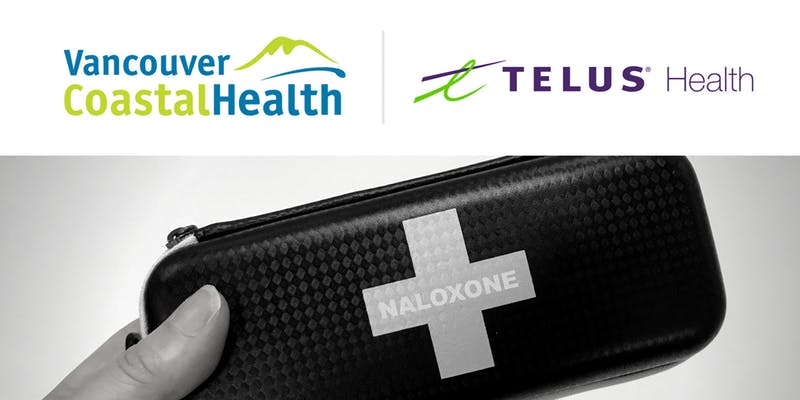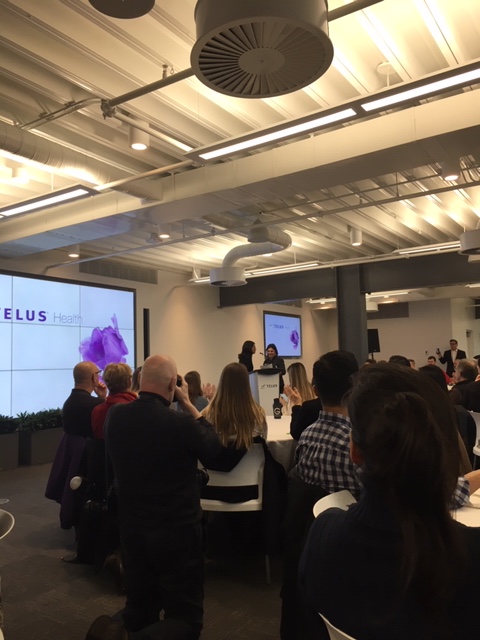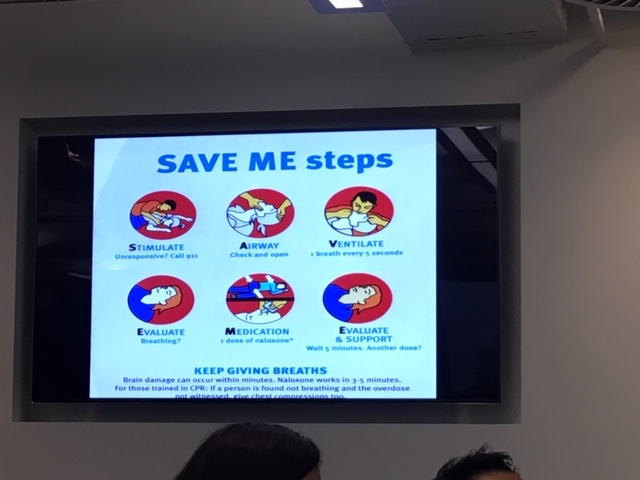Fentanyl is the driving cause behind so many overdose deaths lately that it’s hard to ignore. It is no longer an offshore or an unfamiliar problem, it has become so real over the past two years and it’s getting scarier and scarier. Drug abuse and related stories with tragic endings first only appeared on the news, then you heard about a friend of a friend’s family member, and then it got closer by being your friend’s kid and, who knows, soon it may affect our street, our home or our work.
So when I heard about the opportunity to join the Telus Health in partnership with Vancouver Coastal Health, training session to recognize an overdose and to administer Naloxone, I signed up!
The B.C. government has done a good job in making it easier for people to learn how to respond to an overdose, but sometimes you need to be given the actual tools. Naloxone hydrochloride (naloxone) is a drug that can temporarily stop the effects of opioid drugs. Naloxone can help restore breathing during an opioid (e.g. morphine, hydromorphone, methadone, heroin, or fentanyl) overdose and an important element in the decision to participate to this specific practice class was the promise to be given a “take Home Naloxone kit”.
During the course, I learnt to recognize the signs of an opioid overdose, I understood the different steps to take in order to better assist an unconscious individual and finally, I learnt to administer Naloxone.
I am so glad to have had the opportunity and to have taken that extra step and I am comforted by the knowledge that I am in possession of one of those life saving kits – which hopefully I’ll never have to use.
If you are interested to hear more about local stories and to help drive change, I would recommend watching the documentary Painkiller in HERE. or finding out more about Nalaxone here, https://towardtheheart.com/naloxone-training


